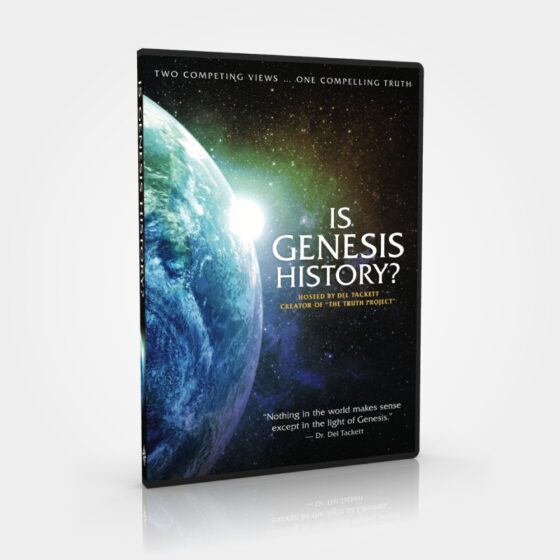What if President Roosevelt had been assassinated in 1933? Or Nazi Germany had won WWII? Or Japan had occupied the western half of the United States after the war?
All these events happen in Philip K. Dick’s 1962 novel The Man in the High Castle. In his story, he develops two alternate histories of the world that run parallel to each other. In one history, the Allies win the war; in the other, the Axis win. A few years ago, Amazon started making it into a powerful new series.

Watching it is rather unsettling. The first time you see red swastikas in Times Square or Japanese flags in San Francisco, it gives you a strange, uneasy feeling. Everything familiar is somehow warped.
As the story develops, characters figure out there are parallel histories and begin to journey between them, eventually using one to influence the other. What happened in the past in one alternate history actually changes the future in the other.
Past Assumptions
Stories like this work because we all know that people, decisions, and events are consequential. Endless small decisions change the fabric of history; major events change the course of the world. What The Man in the High Castle reminds us of is that everything in the present precariously rests on what happened in the past. Change just a few things, and everything is different.
Yet it goes further than that. What it demonstrates is that if people think something happened in the past—even if it didn’t—that assumption influences their choices. This is important to remember: how we view the past directly influences choices we make in the present, which in turn determines the future.
Such an assumption occurs at a key point in the story. An old newsreel of a nuclear explosion that happened in one history is brought into the alternate history. When people watch it, they assume it is a record of their own past and are convinced something happened when it really didn’t. Their assumption about the past causes them to make a decision in the present (in this case, not to go to war) which affects the futures of billions of people.
It is the perfect example of the power of the past to change the future.
An Uneasy Feeling
This perspective can help us understand the importance of our view of Genesis.
Why are young Christians bothered when they hear an evolutionary history of the world? Why are young agnostics concerned when they hear evidence for the history recorded in Genesis? It is the influential weight of an alternate history bearing down upon them.
I pondered this in light of my own discussion with my daughter which led to the creation of our film Is Genesis History? I realized she had grown up being taught a Biblical history of the world. When she first heard the evolutionary history, she realized that it was an alternate history of the universe attempting to displace the Biblical history.
Evolutionists understand this, too. They believe that certain scientists have been able to reconstruct the history of the natural world. They think the events in that history were primarily influenced by natural forces over billions of years. When they look at Genesis, however, they immediately know it is a history that, if true, completely displaces their history.
Young people intuitively understand these two histories are mutually exclusive.
This is because they each contain radically different timelines and events. There is no way to merge a less-than 10,000-years-old earth with a billions-of-years-old universe. There is no way to merge the instantaneous creation of Adam and Eve with the progressive evolution of thousands of hominids. There is no way to merge a perfect world without death with a world that includes millions of years of death.
This is why attempts at merging the two histories are ultimately unsuccessful and have limited adherents. ‘Old Earth Creation’ (the idea that God created life in successive but distinct creation events over billions of years) appeals primarily to intellectually-minded Christians who start with the Biblical text, then adjust parts of it to fit the conventional timeline. ‘Theistic Evolution’ (the idea that God used evolution to progressively create all life) appeals to those who start with the conventional evolutionary timeline, then make God the ultimate cause.
Both attempts ignore the power of historical logic. If certain things happened in the past, those things have inescapable consequences in the present. Most Christians who talk about accepting theistic evolution or old earth creation often mention the initial sense of unease they felt as they tried to reconcile opposite histories. Only those with the intellectual ability to hold opposite points in tension can long maintain these views. Everyone else ends up landing on one side or the other.
As the history of the West reveals, most fell to the side of evolution. As the evolutionary history displaced the Biblical history, people began to believe evolution was the true history of the world.
The results were shocking.

The Power of Evolutionary History
One need not look far to see the consequences of Darwin’s new history of the universe. Although there are countless ways evolutionary history transformed the world, here are three that push historical logic to its natural conclusions:
- Eugenics – The eugenics movement officially began with the work of Charles Darwin’s younger cousin, Francis Galton. Galton understood that if the evolutionary history of the world were true, then those groups that have the most offspring eventually take over a society. Since ‘inferior’ races such as africans, hispanics, and unfit whites had more children than the ‘superior’ white European race, the State should use birth control, sterilization, and abortion to limit the growth of these groups. Galton said, “what Nature does blindly, slowly, and ruthlessly, man may do providently, quickly, and kindly.” Some kindness. The eugenics movement spread like a virus through Europe and the United States, influencing Margaret Sanger to found Planned Parenthood in 1916 and the US Congress to pass forced sterilization laws that sterilized tens of thousands of US citizens up through the 1950’s. Even today, the eugenics movement can be seen in the worldwide abortion industry as it engineers the deaths of tens millions of children every year.
- National Socialism – In the late nineteenth century, evolutionary thinking took hold in Germany through the work of Ernest Haeckel. Edward Larson writes in Evolution that Haeckel “provided scientific support for the particularly virulent racism that infected some strains of German thought during the late eighteenth and early nineteenth centuries, culminating in Nazi race theory.” Hitler confirmed this himself in Mein Kampf, writing, “But little as Nature wishes a mating of weaker with stronger individuals, still less does she want the fusion of a higher with a lower race, since otherwise the whole labor of selective evolution…would be set at naught.” After all, if Nature had wiped out millions of lesser races in the past, why should the Nazis not do it in the present?
- Marxist Communism – When Karl Marx first read Origin of Species, he wrote to fellow communist Friedrich Engels saying this was “the book which, in the field of natural history, provides the basis for our view.” After all, if man is not made in God’s image and does not have an eternal soul, then what does it matter if the State kills hundreds, or thousands, or millions of its own people as it seeks to realize the aims of communism? It is no coincidence that Lenin, Stalin, and Mao also happen to be the greatest mass murderers in history with over a hundred million deaths attributed to them.
These are just a few examples of what happened when people assumed the evolutionary history of the world was true. Such an assumption has led to the loss of faith of tens of millions of people, the destruction of hundreds of millions of lives, and the moral sickness of entire cultures. This assumption stands behind the current confusion in sexuality, with homosexuality seen by those who adopt evolutionary history as a natural result of sexual selection over millions of years.
What one thinks happened in the past is powerful indeed.

The Power of Biblical History
In contrast to this, there have been many men and women throughout history who understood the implications of the Bible providing the true history of the world. Here are just a few who assumed the Biblical history to be true, and acted on those assumptions:
- Constantine – As the first Christian emperor of Rome, Constantine rejected the pagan history of the universe and accepted the Biblical history, radically transforming the future of the world. He created an environment in which Christians could begin to publicly take care of the sick and poor through hospitals and hospices; he established freedom of religion; and he set the Roman empire on a course that would eventually end with the abolishment of abortion and pagan sexual practices under the reigns of future Christian emperors.
- Isaac Newton – Most people don’t know that the greatest scientist of all time was also fascinated with Biblical chronology. He saw the entire history of the universe as one that revealed the truth of God in nature. In fact, it was his recognition that “God created everything by number, weight and measure” that led him to postulate that the physical world could be predicated and understood through mathematical principles. All of modern science rests on the work of Christian men who believed the world was rational and understandable because a rational God had created it to be that way.
- William Wilberforce – The man who oversaw the end of the slave trade in Britain was motivated by his understanding of God’s actions in the past as recorded in the Bible. Where evolutionary history provided a justification for men destroying one another, Wilberforce instead said that, “Is it not the great end of religion, and, in particular, the glory of Christianity, to extinguish the malignant passions; to curb the violence, to control the appetites, and to smooth the asperities of man; to make us compassionate and kind, and forgiving one to another; to make us good husbands, good fathers, good friends; and to render us active and useful in the discharge of the relative social and civil duties?”
Again, these are only a few of the people who assumed the truth of Biblical history and acted upon it. There are many more who have transformed the world through their work as missionaries, doctors, politicians, teachers, and pastors. The contrast between these two histories is stark, and it grows even more obvious when one studies the results over time. It is only when we accept the Biblical history of the universe that we can fulfill the purposes for which we were created.
What one thinks happened in the past is powerful indeed.




